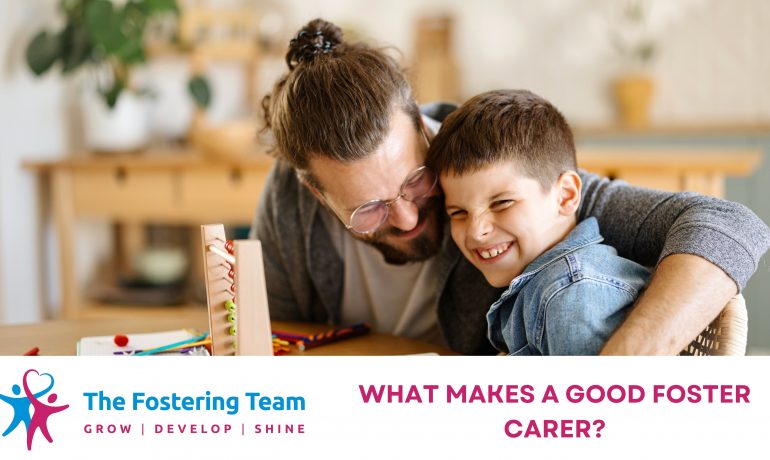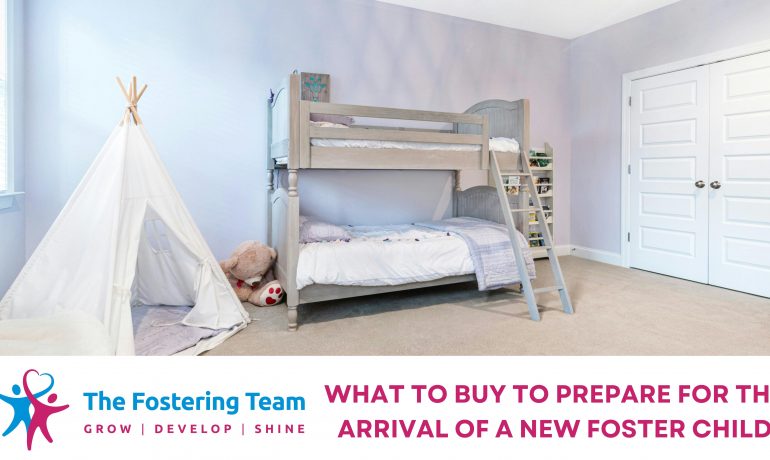Being a Foster Carer is a rewarding and fulfilling career that provides potentially life-changing opportunities for a child to be cared for and respected as an individual and to develop positive bonds of attachment with adults. These important stabilising relationships help children to grow, develop and shine in their social, emotional and educational development.
At The Fostering Team, we work in a way that is different to many other fostering services, in that every element of our work, be it a training course, meeting, or our comprehensive range of support services, is designed to offer positive therapeutic outcomes, with a ‘golden thread’ of therapeutic values weaving all of these aspects together. The children we care for have often experienced significant trauma and we train and guide our Foster Carers to become confident and proficient in providing each child with individually considered therapeutic care experiences.
Our specialist therapeutic fostering provision provides an individual assessment for all our children at the point of placement, with subsequent reassessment every six months so outcomes for children can be monitored. This enables us to assess the child’s progress and development and identify any additional needs they may have. In addition to social work supervision, Foster Carers also have therapeutic consultations to help them reflect on the care they provide and discuss the therapeutic care plan with a psychotherapist.
We provide our Foster Carers with all the tools they need to be equal professionals in The Fostering Team, with advice and guidance always just a phone call away, and a programme of inspirational training, that builds expert knowledge in a wide range of fostering-related subjects.
There are different types of foster care to meet the different needs of children, including:
Short-Term Fostering
When a child needs fostering support for a relatively short period of time, which could be from a few days or weeks to several months. This is usually a formal interim arrangement until they can return to their birth family or as a ‘bridging placement’ until a suitable long-term foster family is available.
Long-Term Fostering
Sometimes it can be months or even several years before a child can return to their birth family, and in some cases, they may never be able to do so. Foster Carers who can provide safety and stability to children on a long-term basis are therefore needed to provide this type of care.
Short Break (Respite) Care
Planned short breaks, also known as respite care, are provided to children and young people away from their birth families or carers. These short-term breaks provide an opportunity for children to gain new experiences, learn different skills and develop new bonds outside of their everyday environment.
Parent and Child Placements
Parent and Child placements provide parents with babies or young children the opportunity to develop their parenting skills, by living with a specially trained Foster Carer. There are many reasons why a parent may be struggling to cope with their child and the majority of Parent and Child placements do tend to involve young mothers under the age of 18 years with a new-born. Parent and Child placements can help to keep families together as it can understandably be an anxious time for young mothers, especially if they do not have a strong support network, or positive parenting role models of their own to rely upon.
Emergency Care
There are times when a child may need to be placed in care due to unforeseen circumstances. Providing emergency care at short notice means children can be placed in a safe environment sooner rather than later. There may be minimal information available to Foster Carers at the start of this type of placement, but the team at Flourish Fostering will work closely with the child’s Local Authority to gather essential information as quickly as possible during the first few days.
Bridging to Adoption
The plan for some children coming into foster care is that they will eventually be adopted by a ‘forever family’. Their time in foster care is referred to as a ‘Bridging Placement’, as it ‘bridges the gap’ between leaving birth family and waiting for the adoptive family to be identified and carefully matched. This type of fostering, like all others, requires special skills from the Foster Carers who will help the child make these difficult transitions.
At The Fostering Team, together, we can make a difference. Start your journey and find out more about what being a Foster Parent with The Fostering Team involves.
Related Post
What to Buy to Prepare for the Arrival of a New Foster Child
What to Buy to Prepare for the Arrival of


